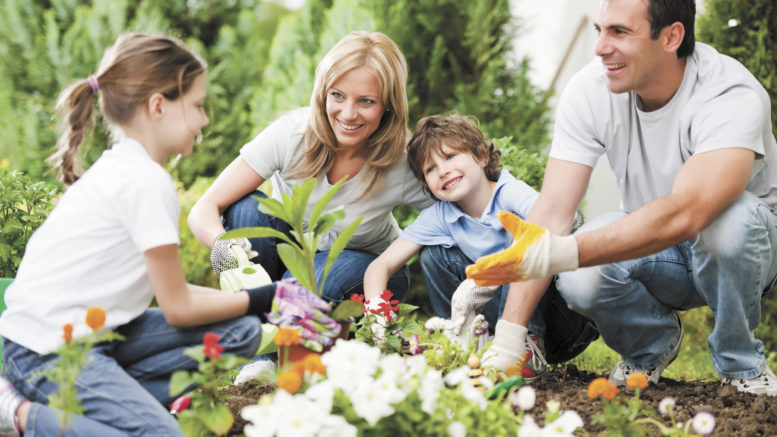Gardening with your children helps their development
April through May and even early June is the perfect time to start a gardening project with your children. We all are schooling from home and spending more time outdoors as a family. Gardening with children provides the perfect combination of skills and tasks to address your child’s development. For example, gardening is a great physical development activity. Just make sure and don’t jump the gun. Pay attention to what your planting and the temperatures.
Young children can practice locomotor skills, body management skills and object control skills while they move from one place to the other carrying tools, soil and water. They will be moving their bodies using large muscles and using muscles to balance and manage objects too. Fine motor skills such as whole-hand grasping and the pincer grasp (necessary skills for writing) are employed in gardening when children use a trowel or rake and pick up tiny seeds to plant. Further, being outdoors in the fresh air and moving around a lot is a good way to get exercise.
Another aspect of physical development is the sensory stimulation that you can experience in a garden. Water is a critical part of gardening and, if your child enjoys nothing else, playing with the hose or the watering can be a highlight. Feeling the texture of the soil or the plant leaves is also interesting, as is the smell of the fresh garden and its plants.
Of course, most gardens are a visual explosion of colors, tones and shades. If you plant edible plants, this is one of the few areas where you can actually safely employ your child’s sense of taste. Children are often more willing to try a new food if they have been involved in the process of growing it.
Literacy skills can be part of gardening, too. Learning the names of different plants and reading what their growth requirements are on the seed or plant packages is a literacy activity. Another reading/writing activity could be making a map of your garden or your yard and labeling the plants in it. A map of the area that you plant can be really helpful when those seeds start to sprout and you are not sure which one is a weed and which is the vegetable or flower you planted!
Cognitive development is all about intellectual skills such as remembering and analyzing information and predicting outcomes. You can do plenty of that in your garden with children. By asking open-ended questions about what you have already done in your garden and what they think you should do next, you are helping them think through the processes of preparing the soil, planting, watering and weeding. Ask them to tell you about the differences between the various plants you are growing or the different parts of the plants themselves. Show them the entire plant—roots, stem, leaves, flowers and seeds—or let them draw the plant at different stages of growth.
Finally, working together on your garden with your children is togetherness time. You build bonds with children and create memories from your experiences in the garden. While your children are learning a lifelong love of growing things, you are learning more about your children—how they think, what they like and dislike and how capable they really are. Your plants can create a beautiful environment, whether they are in a garden, a raised bed or a pot, and you and your children will enjoy every stage of the process.
I know my love of plants and gardening stem from helping my parents, and both sets of my grandparents in their gardens, from planting seeds to harvesting the final product, and then breaking beans and shucking corn. I would give a million dollars to go back and pick tomatoes with my Pa Joe, or just to sit and shuck corn in the shade with my Memaw. I still like to talk about my yearly gardening goals or plans with my Mother.
My family has already started, by planting some seed potatoes, and checking daily on our blueberries, blackberries, apple trees, and other blooming plants that have started to emerge. We still have a lot to look forward to, as we plan to plant tomatoes, peppers, other vegetables, and pollinator friendly plants. Take advantage of this time home with your family and plant a garden together.
For more information or any questions about gardening, contact the Putnam County UT Extension Office at 931-526-4561.
UT Extension Putnam County is an extension of the University of Tennessee working in Putnam County to provide Real Life Solutions in agriculture, family & consumer sciences, and 4-H youth development. We work with youth, families, and land owners to provide education and solve everyday problems.
Trent Jones
Extension Agent II
4-H Youth Development
UT Extension Putnam County
900 S. Walnut Ave., Room 4
Cookeville, TN 38501

